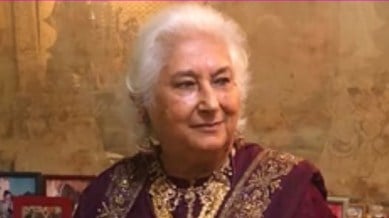New Delhi, Jan 10 : Bimla bissell , a quiet force behind Fabindia’s enduring legacy, passed away at 92, leaving behind a rich tapestry of contributions to India’s textile and design heritage. In the late 1950s, long before traditional crafts were celebrated globally, Bim’s creative vision helped transform India’s handwoven fabrics into symbols of elegance and modernity. Her journey began as an advisor at New Delhi’s Cottage Industries Emporium, where she supported her husband John bissel, in launching Fabindia in 1960.
Through her keen understanding of design, Bim helped reintroduce regional weaves like Chanderi, Sanganeri, Kutchi, and Banarasi to urban consumers. Her minimalist, comfortable designs struck a chord with generations of shoppers, making traditional attire a seamless part of contemporary life.
Beyond textiles, Bim broadened Fabindia’s reach to home furnishings, creating a unique blend of tradition and modern chic. Her vibrant personality and deep social consciousness also shaped her role in community-building initiatives. Alongside Pupul Jayakar, she became a central figure in the ethnic chic movement of Delhi. Journalist Sunil Sethi fondly recalled her legendary Christmas gatherings, known for their blend of Indian and Western culinary delights and warm hospitality.
Between 1975 and 1996, Bim served as Social Secretary to U.S. ambassadors and worked at the World Bank, where she continued to promote Indian craftsmanship on global platforms. Even after Fabindia’s success, her commitment to social causes endured. In 1992, she founded Udyogini, an NGO dedicated to empowering women entrepreneurs in rural India.
Bim Bissell’s legacy, woven with passion, creativity, and an unwavering belief in India’s artisans, will continue to inspire generations to come.

